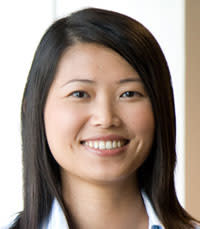12 women entrepreneurs who smashed the glass ceiling in Southeast Asia
In business, men have traditionally ruled. Most of today’s biggest startups were founded and are run by men. Yet some women are changing the scene.
Tech in Asia brings you a list of at least 12 women who have broken through barriers and overcome obstacles to achieve success in Southeast Asia’s tech industry.
Nabilah Alsagoff, Doku

Alsagoff is the founder and current chief operating officer of Doku, an online payments firm in Indonesia.
She got the idea for her startup after working on a tourism website that was meant to help Bali recover from terrorist attacks in 2002. A Malaysian company was servicing payments for transactions on the website so Alsagoff formed a similar concept for Indonesia.
Doku counts big brands like AirAsia and Sinar Mas Land as its clients.
Veronika Linardi, Qerja

Linardi is behind Indonesian site Qerja, which lets jobseekers and employees share information about companies publicly – much like US platform Glassdoor. Users go to the site to find transparent information about a company’s pay scale and hiring practices.
In March, Qerja raised an eight-digit funding round from SB ISAT Fund, a joint venture of SoftBank and Indosat. It called the round “one of the highest series A valuations of any Southeast Asian startup.”
Linardi, which has led her own recruitment firm Linardi Associates since 2006, is ready to take Qerja to the next level.
Hooi Ling Tan, GrabTaxi (MyTeksi)

Asia is experiencing a ride booking boom. Uber is aggressively attacking Southeast Asia, while Easy Taxi is fighting hard to gain a strong foothold.
Malaysia-based GrabTaxi, in the meantime, is gaining traction across large swathes in the region, and was recently named one of Southeast Asia’s “unicorn” startups with an estimated billion-dollar valuation.
Hooi Ling Tan, a former McKinsey consultant, co-founded GrabTaxi with her classmate at Harvard, Anthony Tan. Together, they worked on a business plan for the mobile app that would connect customers directly to taxi drivers via phone. They submitted the plan to a Harvard startup competition in 2011. By 2012, they launched the app in Malaysia. GrabTaxi is now available in 21 cities across the region, and has so far raised US$340 million in funding.
Sylvia Yin, Shoppr

With ecommerce companies rising in waves, the competition is heating up rapidly. On the receiving end are consumers who need to contend with a mess of store apps on their smartphones. Yin experienced this herself, so she co-founded Shoppr, a Tinder-like online store aggregator app.
Shoppr draws heavily from the dating app’s swipe-to-discover methodology and uses a behavior learning algorithm. This way, it shows users products that they would most probably buy.
Yin aims to steer Shoppr from Malaysia to become a leader in mobile fashion discovery and shopping in Southeast Asia.
Reese Fernandez-Ruiz, Rags2Riches

Since 2007, Fernandez-Ruiz and her team have been helping women in poor communities in the Philippines make a living from weaving eco-ethical fashion and home accessories for their startup Rags2Riches.
Rags2Riches sells accessories created out of upcycled scrap cloth, organic materials, and indigenous fabrics online and in retail stores. The startup has trained 900 people in the business – mostly women who reside in one of the Philippines’ biggest dump sites. Before Rags2Riches entered the picture, the women were engaged in handicraft production and had fallen prey to middlemen, who unfairly controlled their access to the market.
This year, Fernandez-Ruiz was recognized by Forbes in its prestigious annual list of 30 Under 30 Social Entrepreneurs. Forbes said she belongs to “an elite group of people who are directing their talent and conviction to better the world.”
Chow Paredes, Zipmatch

Paredes is a professional real estate broker who’s behind ZipMatch, one of the Philippines’ leading real estate portals that lists and reviews properties for sale and rent. ZipMatch is now a driving force in the country’s economy.
Through ZipMatch, Paredes aims to professionalize property brokerage by taking out old industry habits of cutting corners and pushing for sales without a strong sense of customer service. Her team is doing this by taking bulk of the work of brokers, training them, and helping them go the extra mile in servicing clients.
Huang Shao Ning, JobsCentral

The community of internet-based entrepreneurs in Singapore rejoiced when US-based CareerBuilder bought JobsCentral back in 2011, when there weren’t many such deals.
Co-founded by Huang Shao Ning, JobsCentral was one of the largest job portals in Singapore with over 800,000 registered jobseekers at the time of its acquisition. The team’s story serves as an inspiration to many founders who wish to carry out a successful exit.
Qing-Ru Lim, Zopim

Zopim, a Singapore-based startup known for its live customer support chat widget, was acquired by San Francisco’s customer support company Zendesk in a deal worth S$30 million in 2014. It was one of the biggest exits among Singapore startups.
The Singapore company started in 2008 and came out of beta two years later. The founders, among them Qing-Ru Lim, struggled in the early stages, paying themselves a measly S$410 a month for two years. The hard work bore fruit and they grew their user base to 40,000 businesses at the time of the Zendesk deal. A source familiar to the transaction said Qing Ru got S$3.57 million for her stake in the company.
Alexis Horowitz-Burdick, Luxola

When online cosmetics store Luxola started in 2011, there were months when founder Alexis Horowitz-Burdick could not pay herself or her team, as there was no predictability in the business at that point of time. Fortunately, her colleagues believed in the company, and were willing to sacrifice and forgo their salaries for the bigger mission.
Fast forward to 2014, Luxola raised millions of dollars in funding to fuel its expansion in Southeast Asia. Luxola now has operations in Singapore, Indonesia, and Thailand, and they ship to Hong Kong, UAE, Brunei, Malaysia, Philippines, and Australia.
Sarah Huang, WhatsNew

Huang co-founded Ardent Capital-backed WhatsNew, Thailand’s rising ecommerce conglomerate. Having spent the last 10 years in ecommerce, Huang is very knowledgeable about this space.
With her at the helm, WhatsNew grew from a small business to a regional one, scaled from one vertical to a portfolio, which now includes brands Petloft, Venbi, Sanoga, and Lafema. She helped increase revenue growth from a few thousands of dollars for the first few months after the company’s launch to US$2 million annually.
However, Huang has moved on from WhatsNew to focus on being a mom and become principal consultant of Buzzebees, which specializes in building mobile technology with an emphasis on consumer loyalty.
As for WhatsNew, it recently announced the acquisition of lifestyle-focused MOXY, its fifth ecommerce store. It continues to aim to build the female economy and be number one in categories it is in.
Esther Nguyen, Pops worldwide

Nguyen grew up in the States. After graduating in 1998, she ran an ecommerce startup selling beauty and cosmetics in US. She didn’t have much experience in running a business so it didn’t last long. Then she went into green technology. It was the dot-com era, and green tech wasn’t sexy; this folded too. Her unsuccessful ventures didn’t stop her though. She set up a developer studio in Hanoi and managed it offshore from the US. In the course of running this business, she saw a big opportunity in music downloading in Vietnam and she went straight at it. She sold her shares in the developer studio to her partners, packed two suitcases, and left the US to put up Pops Worldwide.
Pops Worldwide specializes in producing mobile apps as well as licensing and publishing media. Since September 2008, it has been accumulating the licenses and distribution rights for most of Vietnam’s music – up to 90 percent. It is now the main licensee of Vietnamese music on Youtube.
Thuy Thanh Truong, Tappy

Truong is famous in Vietnam’s startup scene, thanks to all that she has achieved at the young age of 29. She co-founded Greengar, one of Vietnam’s successful mobile startups dealing with games and utilities as well as Tappy, a social app that transforms any location into a virtual community sharing content. In May, Tappy was acquired by game-building platform Weeby, catapulting Truong into becoming Weeby’s director of business development for Asia.
This post 12 women entrepreneurs who smashed the glass ceiling in Southeast Asia appeared first on Tech in Asia.

 Yahoo Finance
Yahoo Finance 
